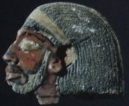- Do not refuse to help a man or an animal which is collapsing under its burden. (Exodus 23:5) (Deuteronomy 22:4)
- Do not use dishonest weights and measures. (Leviticus 19:35)
- Do not possess inaccurate weights and measures. (Deuteronomy 25:13-14)
- A judge must not pervert justice by rendering his own opinion. He must judge according to Yahawah’s Laws. (Leviticus 19:15)
- A judge must not accept bribes. (Exodus 23:8)
- A judge must not show partiality to the rich. (Leviticus 19:15)
- A judge must not be afraid to give Righteous Judgment. (Deuteronomy 1:17)
- A judge must not show partiality to the poor. (Leviticus 19:15)
- A judge must not deny justice to the poor in his lawsuit. (Exodus 23:6)
- A judge must not show pity to the guilty. (Deuteronomy 19:11-13, 21)
- A judge must not pervert the justice due to the stranger or the fatherless. (Deuteronomy 24:17)
- Do not spread a false report. (Exodus 23:1)
- Do not fail to report sin or testify in an investigation. (Leviticus 5:1)
- Do not follow the crowd in doing evil. (Exodus 23:2)
- Do not appoint as judge one who is ignorant of Yahawah’s Laws. (Deuteronomy 1:13)
- Do not give false testimony in a lawsuit or investigation. (Exodus 20:16)
- The judges must not accept false testimony in a case. (Deuteronomy 19:16-17)
- Do not judge a person for the actions of either their parents or their children. (Deuteronomy 24:16)
- Do not judge a matter on the testimony of one witness, or on circumstantial evidence. (Deuteronomy 19:15)
- Do not murder. (Exodus 20:13)
- The judges must not condemn an innocent or righteous person. (Exodus 23:7)
- Do not judge a matter until it has been fully investigated. (Deuteronomy 19:18)
- Do not put a murderer to death before the judges hear his case. (Numbers 35:12)
- Do not fail to carry out the sentence of judgment. (Deuteronomy 17:11-12)
- Do not punish the innocent victim of crime. (Deuteronomy 22:26)
- Do not accept ransom from one who willfully murdered. He must surely be put to death. (Numbers 35:31)
- Do not accept ransom from one who killed accidentally. He must remain at the city of refuge. (Numbers 35:32)
- Do not endanger anyone’s life. (Leviticus 19:16)
- Do not neglect to protect against hazards. (Deuteronomy 22:8)
- Do not mislead another person by giving unlawful advice. (Leviticus 19:14)
- Do not administer more punishment than the Law allows. (Deuteronomy 25:2-3)
- Do not go about tale-bearing or slandering about anyone. (Leviticus 19:16)
- Do not bear hatred for anyone. (Leviticus 19:17)
- Do not share in another’s guilt by not correcting sin. (Leviticus 19:17)
- Do not seek revenge against your fellow man. (Leviticus 19:18)
- Do not bear a grudge against your fellow man. (Leviticus 19:18)
- Do not take the mother when taking the young birds. (Deuteronomy 22:6)
- Do not shave a diseased area of skin. (Leviticus 13:33)
- Do not remove the signs of leprosy. (Deuteronomy 24:8)
- Do not neglect to inform the priests when a dead body is found. (Deuteronomy 21:1-2)
- Do not permit a witch to live. (Exodus 22:18)
- Do not force a bridegroom to perform military service during the first year of his marriage. (Deuteronomy 24:5)
- Do not rebel against the teaching of Yahawah’s anointed servants. (Deuteronomy 17:11)
- Do not add to any of Yahawah’s Laws. (Deuteronomy 4:2)
- Do not take away from Yahawah’s Laws. (Deuteronomy 4:2)
- Do not curse, revile or rebel against Yahawah’s appointed judges. (Exodus 22:28)
- Do not curse, revile or rebel against the authority placed by Yahawah. (Exodus 22:28)
- Do not curse the deaf. (Leviticus 19:14)
- Do not curse parents or teachers. (Exodus 21:17)
- Do not strike or become violent with parents or teachers. (Exodus 21:15)
- Do not work on the Sabbath. (Exodus 20:10, 31:15)
- Do not conduct personal business on the Sabbath. (Exodus 16:29)
- Do not kindle anger or wrath on the Sabbath. (Exodus 35:3; Deuteronomy 32:22)
- Do not work on the first day of The Feast of Unleavened Bread. (Exodus 12:16)
- Do not work on the seventh day of The Feast of Unleavened Bread. (Exodus 12:16)
- Do not work on The Feast of Weeks (Pentecost). (Leviticus 23:21)
- Do not work on The Feast of Trumpets. (Leviticus 23:24-25)
- Do not work on the first day of The Feast of Tabernacles. (Leviticus 23:35)
- Do not work on The Last Great Day. (Leviticus 23:36)
- Do not work on the Day of Atonement. (Leviticus 23:28)

Hebrew Israelite Online Resource | Know Ye Not?
The phrase “know ye not” or rather, "Didn't You Know" is used 15 times in the English New Testament. This site examines what it is the writers felt important that should have been understood by the early HEBREW ASSEMBLIES.